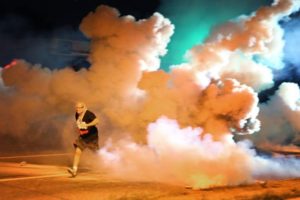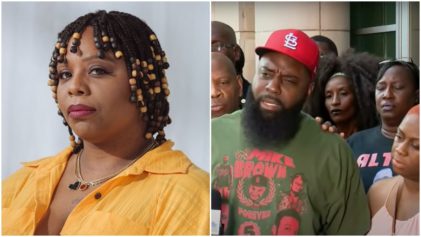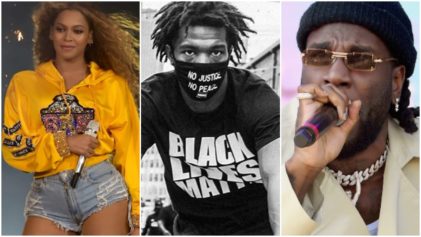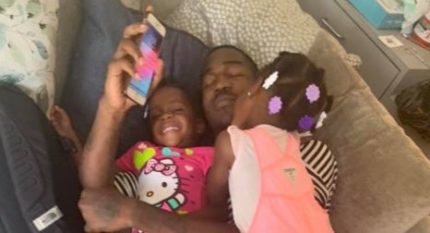
U.S. District Judge Carol Jackson, who issued a temporary restraining order against the police after a hearing on Dec. 11, was expected to dismiss the lawsuit Thursday while keeping supervision of compliance through Jan. 1, 2018. But the two sides came to a settlement agreement.
The restraining order had told police to provide “reasonable” warning before using gas on a crowd. Lawyers for St. Louis Police Chief Sam Dotson, St. Louis County Police Chief Jon Belmar and Missouri Highway Patrol Capt. Ronald S. Johnson agreed to the settlement terms.
The protesters were represented by Thomas Harvey of ArchCity Defenders and Denise Lieberman of the Advancement Project.
“This victory rests on the shoulders of the courageous protesters who are tirelessly demonstrating in the streets of Ferguson, and it’s a testament to the powerful movement they have fostered,” Harvey said in a prepared statement.
Lieberman said, “We had not seen this kind of excessive police force used against protesters since the Civil Rights Movement of the 1960s.
“The use of tear gas in Ferguson has been a tactic to chill this movement, and today’s consent decree will finally put a stop to those efforts.”
Police agreed not to use gas to frighten or punish people lawfully exercising their constitutional rights.
Also, each police agency agreed to pay $2,500 in legal costs. In exchange, plaintiffs Alexis Templeton, Maureen Costello, Brittany Ferrell, Steve Hoffman, Nile McClain and Kira Hudson agreed to dismiss their claim.
Templeton (a demonstrator), Banks (a St. Louis University professor), and Hoffman (a “legal observer” for the National Lawyers Guild) testified at the December hearing to being gassed and treated improperly by officers.
Police witnesses testified that their tactics were necessary to prevent looting and potentially save lives during protests that followed the shooting of Michael Brown, an unarmed black man, by Ferguson police officer Darren Wilson during a confrontation on Aug. 9.
The settlement says that by August 15 police will order their officers to comply with its terms, and include the terms in formal policies.
In the hearing, Jackson had expressed some sympathy for the protesters but stopped short of incorporating all of their demands in the restraining order. For example, the judge rejected a demand that police be restricted to use of tear gas only as a “last resort.” She said there was no way to define that.


